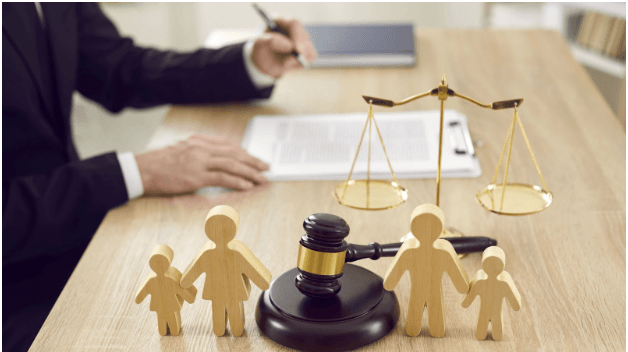Divorce hearings are a pivotal step in the journey of marital dissolution. Besides finalising the logistics of ending a marriage, these hearings bring legal issues out into the open for resolution. For individuals venturing through a divorce, knowing precisely what happens during these hearings is invaluable. By peeling back the layers of these proceedings, individuals can confront the process with confidence and clarity. Preparation not only reduces stress but also enhances the chances of achieving a fair and timely resolution.
Well-informed participation in the legal process can profoundly affect the final outcomes. Understanding the dynamics of a divorce hearing is essential, offering guidance on what lies ahead and how to prepare effectively. Equipped with this knowledge, parties can better manage expectations, making the overall experience less daunting.
Preparing for a Divorce Hearing
Proper preparation sets the stage for a successful divorce hearing. First things first – gather and organise documents that pertain to the marriage, assets, debts, and any issues concerning children. This may include income statements, property deeds, tax returns, and communications related to disputes. Essentially, a well-organised documentation file can make all the difference during the hearing.
When it comes to legal representation, having a lawyer isn’t just beneficial; it can be crucial. While self-representation is an option, family law can be complex, and relying on a seasoned lawyer may provide a clearer path. After all, understanding what family lawyers want you to know about divorce hearings can make tactical navigation considerably smoother.
It’s also important to consider personal preparations. Dressing appropriately for court proceedings demonstrates respect for the legal process and can positively influence perceptions. Remember, attire should be modest and professional.
Additionally, the emotional toll of divorce cannot be underestimated. Individuals should brace themselves for a gamut of emotions, both in the lead-up to and during the hearing. Strategies to stay composed include deep breathing exercises, maintaining an optimistic outlook, and perhaps even seeking support from a counsellor or psychologist.
What Happens During the Divorce Hearing
When the divorce hearing commences, the judge presides as the principal arbiter. Alongside clerks and bailiffs, they maintain order and assist in keeping the proceedings on track. Adhering to courtroom etiquette is essential, as protocol demands respect for the judicial process.
The divorce hearing typically unfolds in a structured manner. The petitioner, the individual who initiated the divorce proceedings, often presents their case first. This includes providing testimony, submitting evidence, and possibly bringing in witnesses. The respondent – the other spouse – then has the opportunity to counter the petitioner’s claims. Both parties may be questioned by the judge for clarity on certain issues.
At this juncture, discussions revolve around the concerns that have arisen, requiring resolution. While some matters might find immediate redress, others might necessitate further debate or additional evidence.
Key Issues Addressed in a Divorce Hearing
Divorce hearings delve into various critical issues that bring closure to a fractured marriage. One of the primary concerns is the division of assets. The court examines the fair distribution of property, financial accounts, and possessions accumulated during the marriage.
When children are involved, custody and support become focal points. The judge assesses living arrangements, schooling, and financial requirements while prioritising the child’s best interests. Disagreements, if any, are mediated towards reaching a balanced arrangement.
Another significant issue is spousal support or alimony. The court evaluates the financial dependency of one spouse on the other, weighing factors such as income, standard of living, and duration of the marriage. Supplementary considerations might include determining responsibility for shared debts, parental duties, and even retirement funds.
Potential Outcomes of a Divorce Hearing
Post-hearing, a judge may issue varying resolutions, from temporary orders to final decrees. Temporary orders might address immediate concerns, such as child custody or spousal support, setting interim rules until a final decision is reached. A final decree, conversely, conclusively resolves all contested issues, signalling the end to legal proceedings.
Nevertheless, not all matters are resolved in a single hearing. Certain complexities might require additional sessions or negotiations. In these cases, it’s critical for parties to maintain open communication with legal counsel, working diligently towards closure.
Post-hearing steps hinge largely on the outcomes. Whether it’s restructuring personal finances, adjusting living arrangements, or planning co-parenting strategies, having a roadmap eases the transition to post-divorce life.
Tips for a Successful Divorce Hearing
Effective communication steals the show during proceedings. Clear articulation of facts, respectful dialogue, and active listening often yield favourable terms. Staying calm is equally crucial; divorce hearings can be intense, but composure is a powerful testament to one’s resolve.
Collaboration with a legal team fuels better execution of strategies. Relying on their expertise can clarify cloudy causes of conflict and iron out misgivings. Above all, trust in their judgement as they spearhead the legal charge.
Feeling anxious is understandable, but courage must not falter. Approach the divorce hearing with readiness and resolve, trusting personal instincts and judicial instruction to illuminate the path forward.
Your Next Steps to a Smoother Divorce Hearing
Understanding the intricate details of what occurs at a divorce hearing is essential for those navigating this challenging stage in life. Being prepared equips individuals with the tools needed to face the process with less uncertainty and greater hope. Informed individuals are more likely to achieve outcomes that align with their expectations.
Approaching divorce hearings with a well-rounded understanding empowers individuals to handle their case efficiently. The importance of preparation cannot be overstated, as one’s preparedness has a direct impact on the hearing’s outcome. For those feeling apprehensive, seeking expert guidance or additional resources can provide the assurance needed to proceed confidently.







